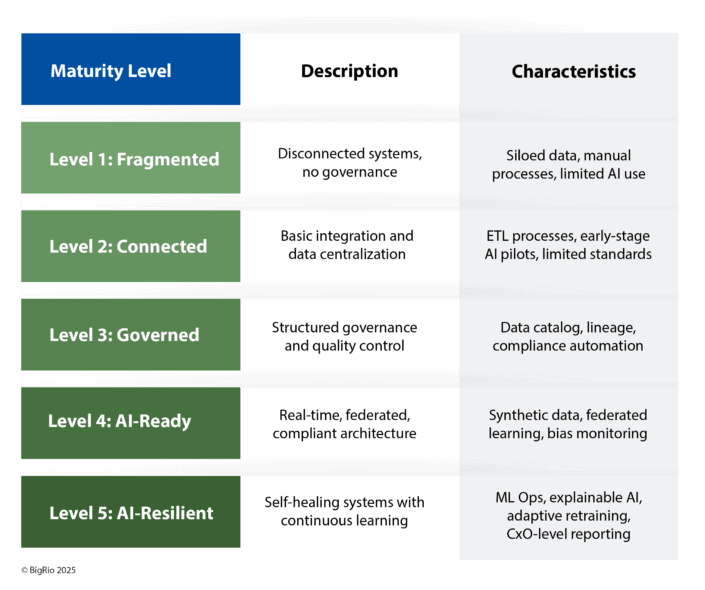And how CxOs can build the systems to power future-ready, compliant, and scalable transformation.
By The BigRio Executive Team
Artificial Intelligence is poised to transform healthcare but only if it’s grounded in the right foundation. Despite growing investments in AI, most billion-dollar health systems are under-delivering on its promise. The core reason? A lack of AI-ready data infrastructure.
The future of AI in healthcare will not be determined by algorithms, but by the systems that enable them: governed, interoperable, privacy-resilient data environments that support continuous learning. Without these, even the most sophisticated AI models will fail to scale, suffer from clinical mistrust, and increase regulatory risk.
This article reframes the AI challenge from a model-centric problem to an infrastructure challenge. It outlines a blueprint for healthcare CxOs to design, fund, and govern an AI-ready data architecture, one that delivers not only compliance, but also clinical and financial ROI.
Move from AI experimentation to AI orchestration
Across the boardroom, AI is being celebrated as the next frontier of innovation. Predictive diagnostics, automated charting, AI-driven decision support, it all sounds like the future. But in most health systems, these capabilities remain trapped in isolated pilots or innovation labs.
85% of healthcare AI initiatives fail to move beyond pilot stage, not due to model performance, but because of disjointed, low-quality, and siloed data. The gap is not vision, it’s execution. And the barrier to execution is infrastructure.
The BigRio perspective is that to operationalize AI at scale, healthcare organizations must invest in three infrastructure pillars:
Fig 1. Three Infrastructure Pillars for Operationalizing AI
Fig 2. BigRio’s AI Infrastructure Maturity Model
Click here to contact the BigRio team for a consulting session.



